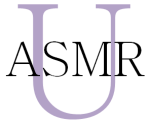 This is the second ASMR research study published by Dr Agnieszka Janik McErlean (Bath Spa University, UK) and Dr Michael Banissy (Goldsmiths, University of London, UK).
This is the second ASMR research study published by Dr Agnieszka Janik McErlean (Bath Spa University, UK) and Dr Michael Banissy (Goldsmiths, University of London, UK).
Their prior study was titled, “Assessing individual variation in personality and empathy traits in self-reported ASMR” and was published March 30, 2017 in the journal Multisensory Research.
Their latest study is titled, “Increased misophonia in self-reported ASMR” and was published August 6, 2018 in the journal PeerJ.
Misophonia is common in discussions about ASMR because some people greatly enjoy ASMR trigger sounds like whispering, mouth sounds, and chewing but others will respond to those same sounds with annoyance, anger, or anxiety (misophonia).
Curiously, some people who report experiencing ASMR to some triggers also report experiencing misophonia to other triggers. This hyper-sensitivity to sounds has people often wondering if people who experience ASMR are more likely to also experience misophonia.
 I initially reported about this published study on
I initially reported about this published study on